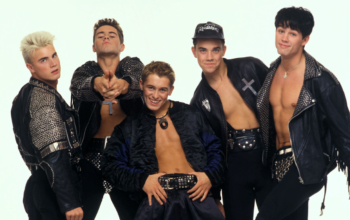Do we live in a post-racial Britain?

The project of multiculturalism has undeniably made some significant strides forward in the post-war era. Indeed, the last general election saw more candidates from ethnic minorities stand than ever before.
Racism today is such a dirty word that even far-right groups like the English Defence League (EDL) are at pains to publicly stress that they are not racist. But does this indicate Britain is now “post-racial” or does it merely point to the fact racism has become more subtle, with a change in the terms of the debate?
In reality, the idea of Britain being “post-racial” is nonsense. Imagine you were trying to describe a person that you saw in the street. Chances are if they are non-white this will be the first descriptor you would use e.g. a black man. If they are white you would probably say their gender followed by their height or hair colour.
Whilst this isn’t racist per se, it demonstrates that race is still a key social determiner and, more importantly, it establishes white as the “norm” and non-white as the “other”. From this simple lingual association grows many more concerning prejudices.
Being non-white is demonstrably a disadvantage in British society across almost any metric of equality, from political representation to income and health. The number of MPs who are from an ethnic minority stands at a feeble 4% compared to 14% of the general population. This means ethnic minorities are disproportionately under-represented in the decision making processes that govern how our country is run.
20% of white people in the UK live in a low income household. For every other ethnic group this percentage is higher, with Pakistanis and Bangladeshis faring the worst with 60% and 70% respectively. Similarly, unemployment stands at 7.3% for white British individuals, whereas for Black, Chinese, Pakistani, Bangladeshi and mixed-ethnicity individuals this figure is almost double.
A disproportionate number of mental health admissions are from black and minority ethnic groups, at 23% (again, compared to 14% of the population). Clearly, these trends are not simply attributable to individual prejudices and instead reflect a systemic problem at the societal level.
The systematic and institutional nature of racism no doubt starts in the arena of culture and attitudes. All too often the contribution of non-white peoples to British culture and society is marginalised, with this rich history uniformly told through the lens of slavery and colonialism. Aside from reifying the subordinate status of non-whites, this version of history is factually inaccurate – black people have lived in Britain since at least Roman times, and Indians have been here since the 16th century.
In short, non-whites have been a part of our cultural heritage for centuries, but rarely is this fact acknowledged. The contemporary debate surrounding immigration seems to be an extension of this attitude. The latest poll by YouGov showed immigration to be the second most important issue behind the economy. This is no doubt due to a focus on the supposed negative economic impact of immigration on the country, completely disregarding the benefits.
How boring would British culture be if it were not for immigration? How bland would our cuisine be? And as for the economic argument, official data suggests time and again that immigrants contribute a net benefit to the economy of as much as £2.5 billion.
What is more, the mistrust of immigrants often stems from the belief that they come to the UK to claim benefits. In fact, despite making up 9% of the population they only account for 6.4% of the working age benefits bill i.e. an immigrant is less likely to claim benefits than a person born here.
Concern about immigration and racism patently are not the same thing, however, it seems that rather than being based upon any hard evidence, the concern and mistrust towards immigrants stems from prejudice and a fear of the “other”.
Last week, the Home Office came under intense criticism for two particularly pernicious initiatives aiming to show how tough it is on illegal immigrants. The first involved vans bearing the slogan “Go home or face arrest” being driven around particularly ethnically-mixed areas of London. The Unite Union has sought legal advice on whether this amounted to inciting racial hatred.
The second saw immigration officers in stab-proof vests allegedly spot-checking people at tube stations based on the colour of their skin. If this allegation is true, it would be illegal under UK law. It certainly doesn’t seem too far-fetched an accusation, given that a black person is 37 times more likely to be stopped and searched by police than a white person.
What these instances show is that prejudice is diffused throughout different strata of society. There’s no doubt progress has been made over decades but racism still exists and you could argue it is on the rise again. If we are to challenge it we must confront our own internalised prejudices, be careful with how we use language, and challenge the myths and misinformation that lead to the mistrust of the “other”.
Joe Turnbull






















Facebook
Twitter
Instagram
YouTube
RSS